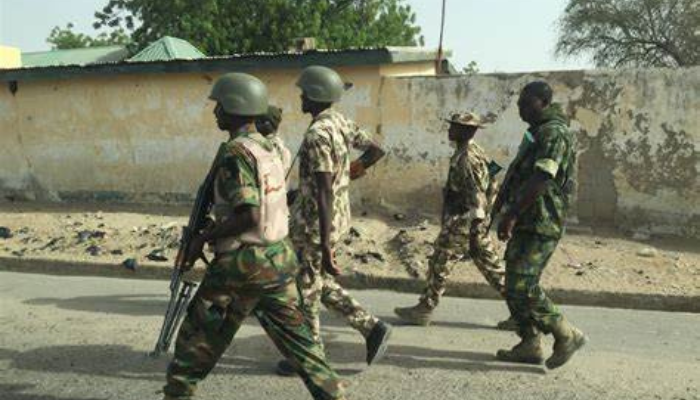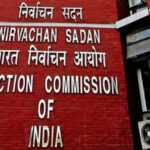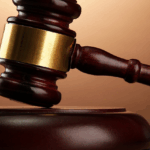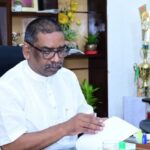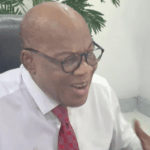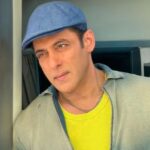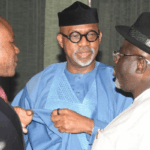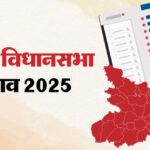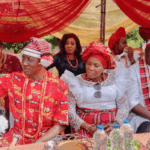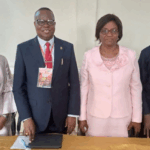The greatest advantage of democracy is the freedom it guarantees to its citizens. Freedom of speech, of association, of different viewpoints among others.
But these categories of freedom have been reduced due to high levels of intolerance by the government. Whenever citizens want to protest against unpopular policies and highhandedness, the government appears afraid.
Protesting is by no means new to Nigerians as there have been many protests over the years against government unfriendly policies dating back to the pre-independence era. However, the strictness that was once synonymous with the army is now a thing of the past for the government.
For example, on May 15, 1994, the pro-democracy group, the National Democratic Coalition (NADECO), was launched as a result of the annulment of the June 12, 1993 presidential election. NADECO housed prominent Nigerians including the current President, Bola Ahmed Tinubu – whose main objective was to return Nigeria to democracy.
Similarly, in 2012, Nigerians occupied Ojota, Lagos in a protest tagged, 'Occupy Nigeria' and popularly called the 'Ojota Protest'. Occupy Nigeria was a socio-political protest movement that began on Monday, January 2, 2012 in response to the removal of fuel subsidies by the federal government under President Goodluck Jonathan on Sunday, January 1, 2012. The protest continued for several days, bringing socio-economic activities to a standstill.
Also fresh in the minds of many Nigerians, especially ‘GenZ’, was the #EndSARS protest of October 20, 2020, which was a decentralized social movement and series of mass protests against police brutality in Nigeria.
However, since the Tinubu administration came to power on May 29, 2023, series of protests have been organized by some Nigerians; Notable among them was the '#EndBadGovernanceInNigeria' protest held between August 1 and 10, 2024.
The protest which was also tagged 'hardship/hunger protest' by the organizers indicated that Nigerians were struggling to cope with the rising cost of living crisis, especially since the government's double-edged economic reforms of removing fuel subsidies and devaluing the Naira came into effect on May 29, 2023.
Also read: From rumor to reform: Understanding the motives behind Tinubu's military reshuffle
On all occasions, protesters have faced a war-like high security presence of police, army and personnel of other security agencies, indicating a crackdown on intolerance and dissent by the government.
“In any democratically elected government, there should usually be a majority that will have its say and a minority that should have its say. Therefore, silencing or suppressing the voice of the opposition is anti-democratic,” Sanmi Johnson Ibidapo, psychologist, told BusinessSunday The beauty of any democracy lies in having different opinions and dissenting voices.
Ibidapo said that slapping a child and still preventing him from crying is against the principle of fairness and justice.
“Therefore, if the policies of the government are not in line with the expectations of the people, people should have the opportunity to express their opinions; the Constitution allows this.”
Ibidapo, who is the coordinator of the Caleb University Counseling and Development Clinic, said that in a democracy silencing dissenting voices or suppressing opposition voices can trigger aggressive reactions, especially when it becomes a public issue.
“Again, especially in Africa our leaders need to be very sensitive to the aspirations of the people, especially in recent times with reports of coups in some countries. Speaking out against government policies or taking a position that does not align with the government of the time is not a criminal offence. It is part of the specificity of democracy,” Ibidapo said.
According to him, the frustration-aggression theory in psychology can become active when the government continuously prevents citizens from expressing their views in a democracy.
“This is the psychology of collective action. Sadly, it is not good for our country because enemies of the state can take advantage of it to spread unrest.”
Ibidapo said that when people are pushed to the wall by being deprived of achieving their goals, they respond with violent aggression.
“If people fail to raise their voices in a democracy it is inviting anarchy. Democracy by definition fails if people cannot speak freely in a democracy,” communications expert Chukwudinma Okojie told BusinessSunday.
According to him, Nigerians may have to assess their voting patterns to favor candidates with proven democratic track records in future elections. “Since freedom of speech and expression is being crushed left, right and centre, the only option people have is to vote for those they feel will represent them better when the elections come.”
However, Moses Lawal, a Lagos-based public commentator, said that Nigeria's democracy has “matured” beyond the stage of any government being able to crush dissenting voices.
“We must not forget that the judiciary, as an independent branch of government, is the appropriate venue for any individual or group that is considered a victim of acts of repression.”
Lawal believes that the media is taking the government to task over some of the issues raised by the protesters and believes that the country can only improve with structured 'checks and balances' in governance.
“Moreover, we equally have a strong and vibrant media as the fourth estate of the region. In short, it should be left to the judiciary to legitimize or invalidate “repression” as a concept. Any other alternative route for expression/interpretation can either be uncivilized or lead to anarchy.”
Also read: Electoral Act reform: Can beneficiaries of vote fraud bring about positive change?
Oshiomhole vents anger on colleagues
In a moment of remorse, Senator Adams Oshiomhole representing Edo North Senatorial District last Wednesday urged his fellow politicians and MPs in the upper house to stop using the unemployed to sabotage the election.
He also urged Nigerians to be wary of hackers in dealing with technology in elections.
“I don't know whether Mr. President will remember. I'm not sure I'm entitled to call the President as a witness, but I want to draw your attention to what I said when we were both governors, first of all, the issue that we must work hard to eliminate in our electoral process is violence. We cannot have an election that appears to be a war, where young men and not so young men, to exterminate opponents or even That they carry AK-47s to fend off those young men and women who are presiding over elections or taking over power. alliance center
“As a sitting governor on that occasion, I believe Governor Dickson was also at that meeting, I remember when I finished, I said, AK-47 is not like buying Akara on the street [only big men can buy them]I remember former Governor Amaechi asked me if I was blaming governors.
“I think I said something close to ‘yes’ because if you ask the security agencies, they will tell you that after every election, violent crimes increase because the politicians who buy weapons for starving children and pay them a small fee, after the elections are over, they are not able to get the weapons back and these weapons are then used by these people for violence.
“You can see a strong correlation between the level of criminality, banditry etc. immediately after the elections, because these people have been abandoned since the results came in, someone said, I should not blame the governors.
“I am not blaming the governors now. I am just remembering what I said earlier and when I listened to all the people who spoke here, everyone spoke in one voice, I did not hear anyone who said that he did not want transparent elections.
“If we all do this, not with our lips but with our hearts, and we decide to shun violence and convince ourselves that Nigerians deserve to be hired and fired without fear of favouritism, on election day, at least every four years, under the right laws. We will have free, fair, transparent elections.
“The beauty of democracy is not that you find yourself sitting in an important elected position.
“It is the feeling in your heart that people actually, of their own free will, find you worthy of being their voice and entrusting our collective legacy into your hands to deliver the good of the greatest number of people.
“That's beauty to me. If you achieve it by body games, by manipulation or other manipulation, deep in your heart, you know you are not a happy person.
“Therefore, I wish to say the following. First of all, each of us and collectively must resolve that as elected persons, we as senators will not, directly or indirectly, covertly or openly instigate the unemployed people and give them arms to obstruct the elections. If we build our character, this problem is 90 per cent solved.”
On the negative impact of the military era on agencies of government in dealing with civilians, Olisa Agbakoba, a senior lawyer of Nigeria, said it was a false existence.
He said, “The only thing that is going to keep Nigeria is the force of arms. Remove the police, remove the army, we will see if things will be like this. So, a country cannot be built this way.”

